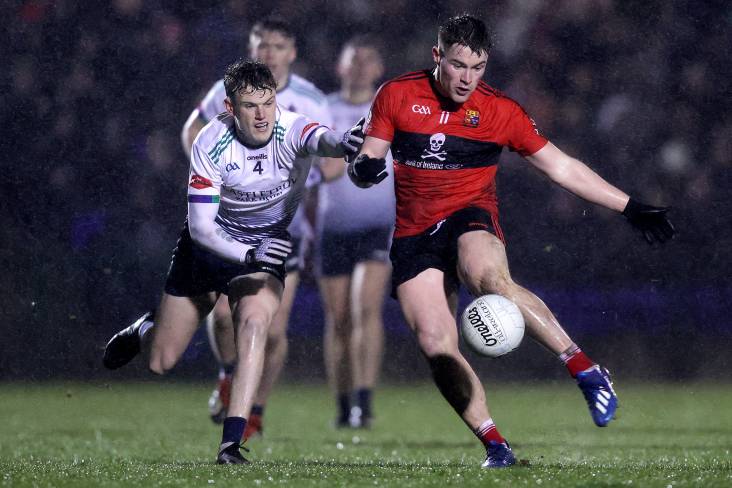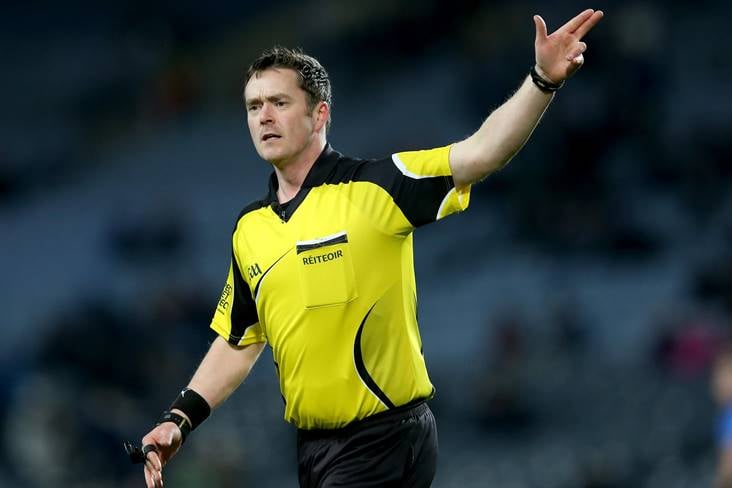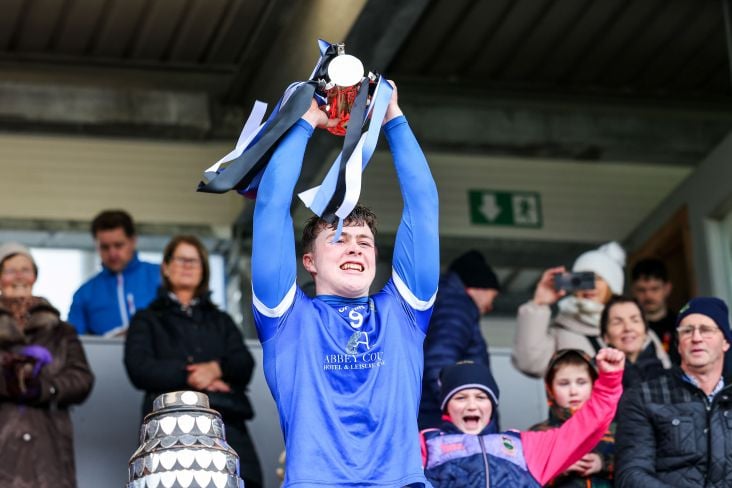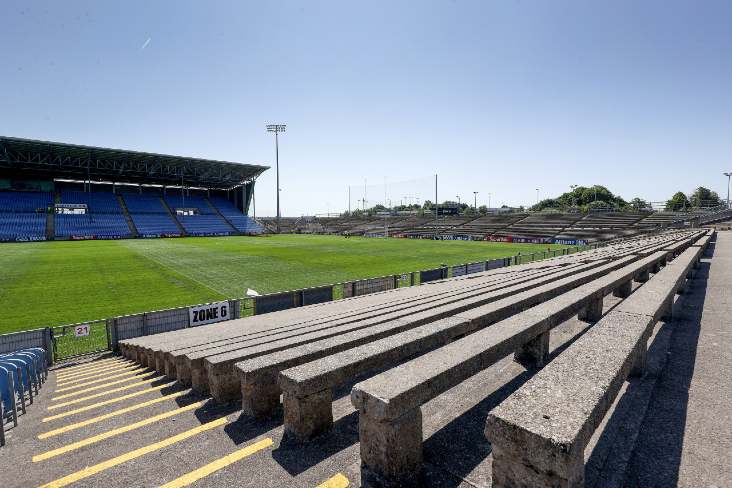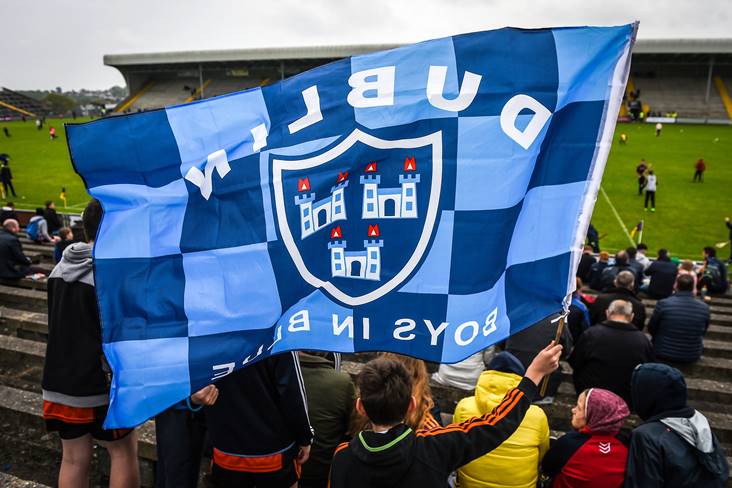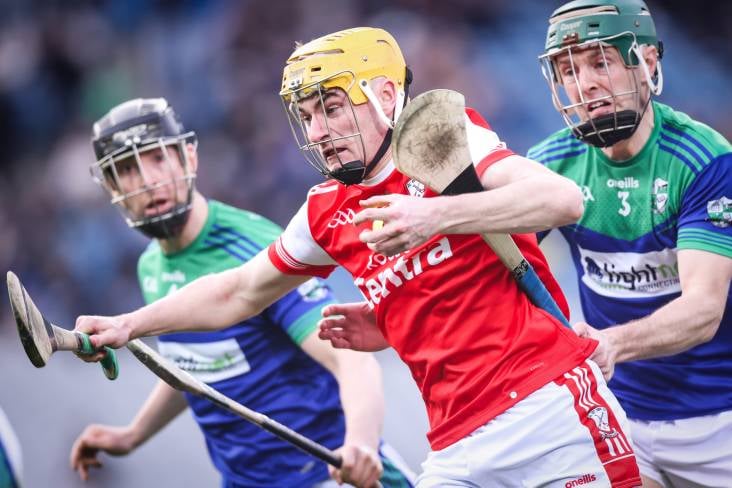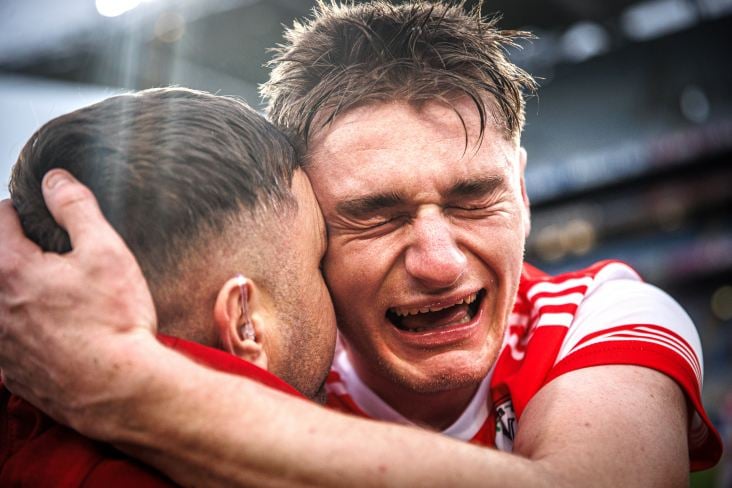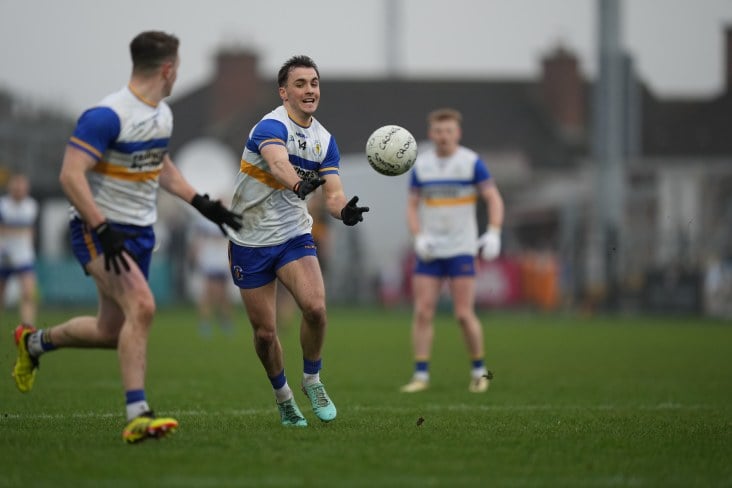42% of Irish public more likely to attend female games to watch a high-profile player
January 14, 2025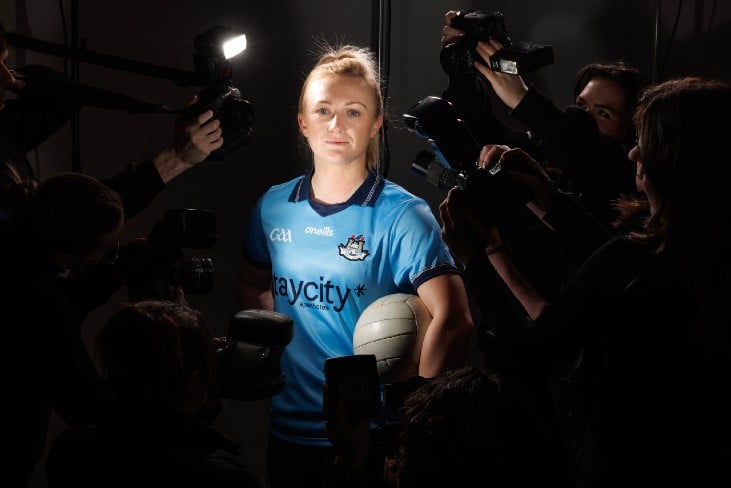
Dublin's 2023 TG4 All-Ireland Senior Championship winning captain Carla Rowe
Lidl Ireland and the Ladies Gaelic Football Association have unveiled striking new research spotlighting the importance of developing and elevating Irish female sporting role models for the positive impact they can have on individuals, society and their sport.
New research conducted by Red C in November 2024 revealed the need for more high-profile female players in sport as 42% of the Irish public said they would be more likely to attend a women’s sporting event in person if someone well-known was playing.
However, the challenge of player visibility and audience connection remains, with 43% believing that not knowing anyone who is playing is a barrier to attending a female sports event – an increase from 33% of respondents surveyed in Lidl’s 2023 research study – illustrating the growing importance of raising the profile of female athletes to attract fans.
Thinking about the challenges facing LGFA players specifically in elevating their public profiles, a quarter of current inter-county players (24%) surveyed say that gender issues and cultural or societal norms – such as prioritising male sport over female sport - is the most significant barrier.
This is reflected in the public’s behaviour and attitudes towards female sport. When asked about the reasons for not attending women’s sporting events, the majority of the public say they still prefer to go to men’s sporting events (51%) whilst almost a quarter (23%) believe the women’s game isn’t as important as the men’s.
Recognising this status quo however, the Irish public believe that challenging societal norms is crucial in levelling the playing field for women, both on and off the pitch. Two thirds of the Irish public (66%) said that having female sporting role models encourages equality, 56% say they encourage diversity and inclusion in society and over half (56%) say it contributes to smashing gender inequality within sport specifically.
When thinking about the importance of sporting role models, over half of Irish adults (57%) say they had one growing up, with Sonia O’Sullivan being the most popular hero, inspiring almost one in ten respondents.
As parents, men are more likely than women to believe that having a female sporting role model is important for their sons (54% men, 46% women) and daughters (61% men, 58% women) growing up.
Parent’s understanding of the impact on children of Irish female sporting role models saw a broad spectrum of benefits – from encouraging a healthy lifestyle for kids (57%), positive mental health (48%) and positive body image (46%); to essential life skills such as instilling teamwork (49%), good work ethic (44%) and leadership skills (37%). Female sporting role models were also deemed to promote equality (55%) and representation within their community (34%).
Recognising the importance of role models within LGFA itself, 100% of inter-county players agree that having LGFA role models are important with over half (58%) believing they can help raise the profile of the sport, but 43% of inter-county players do not currently consider themselves to be role models.
Growing up, 37% of LGFA inter-county players surveyed said they looked to male sports stars as their role models, but just 2% say they currently have a male sports role model now that they are older, highlighting the changing needs for women in sport and the importance of inspirational female athletes throughout a player’s career.
At 27%, Katie Taylor was the most cited female sportsperson who inspired our inter county stars own sporting careers. Closer to the game, players named Cora Staunton, Vicki Wall and Caroline O’Hanlon as the local LGFA stars that inspired them to compete at the highest level.
Focusing on the emotional connection with players that drives fans and spectators, this year’s research shows the significant impact that a successful year for visibility of women’s sport has had in shifting public opinion on support for female athletes.
Three quarters of the Irish public (75%) were able to name an Irish female sports star unprompted. Of this, Katie Taylor remained top of the list and was named by more than half of respondents (57%), whilst a fifth of respondents named Kellie Harrington in second place - growing from just 4% awareness last year to 20% following her stellar gold medal win at the 2024 Paris Olympics.
Other notable boosts in public profiles included Katie McCabe (growing from 10% awareness to 17% this year) and Rhasidat Adeleke (with a significant boost from just 1% to 12% this year) whilst Sonia O’Sullivan, Leona Maguire, Rachel Blackmore, Cora Staunton and Anna Geary all completed the public’s line up.
After an incredible year for Irish women’s sport, which saw the Irish public watch a range of different female sporting events including the Paris 2024 Olympics athletics (47%), boxing (43%) and swimming (39%) events; Women’s International Soccer games (30%); Women’s League of Ireland soccer (13%); Ladies’ Gaelic National Football Leagues and Championships (22%); Women’s Irish Open (11%) and Solheim Cup (9%), one in four (24%) people said they are more interested in female sport now than they were at the same time point last year.
Lidl Ireland Research: 2024 – Key Findings
Lidl Consumer Research Results (Red C carried out in November 2024):
42% of Irish public say they are more likely to attend a female sporting event if a high-profile player was playing.
1 in 4 people (24%) said they are more interested in female sport now than they were at the same time point last year.
41% state that knowing someone who is playing is important in deciding to attend a female sports event.
43% believe that not knowing anyone who is playing is a barrier to attending a female sports event – an increase from 33% of respondents surveyed in Lidl’s 2023 research study.
75% of Irish people were able to name an Irish female sports star unprompted
Katie Taylor remained top of the list and was named by more than half of respondents (57%) whilst 20% named Kellie Harrington - growing from just 4% awareness last year to 20% following her stellar gold medal win at the 2024 Paris Olympics.
59% of parents believe it is important for their daughters to have a sportswoman as a role model.
Men are more likely than women to agree that having a female sporting role model is important for their sons (61% men, 58% women) and daughters (54% men, 46% women) growing up.
Parents believe female sports role models encourage teamwork (49%) and work ethic (48%) while 48% of parents believe they encourage positive mental health.
56% believe female sports stars raise the profile of their sport.
58% believe they encourage greater attendance at female sports events.
77% believe they encourage young girls into the sport.
66% believe female sports stars encourage equality in society.
Lidl/LGFA Inter County Player Research (carried out via LGFA in December 2024)
37% of LGFA players had male sporting role models while growing up.
2% say they only look to male sporting role models as their sporting heroes as adults.
Katie Taylor was the most cited female sportsperson who inspired inter county stars own sporting careers (27%)
Players named Cora Staunton, Vicki Wall and Caroline O’Hanlon as the local LGFA stars that inspired them.
100% of county players believe that female role models are important.
58% believe that the biggest impact they can have is to raise the profile of the sport.
24% believe that gender issues and cultural or societal norms – such as prioritising male sport over female sport - is the most significant barrier preventing female sportspeople from becoming role models.
24% also believe lack of public engagement with or interest in female sport is a barrier preventing female sportspeople from becoming role models.
57% of inter-county players consider themselves to be role models.
Tweet